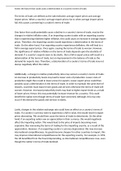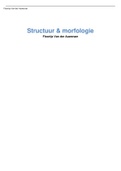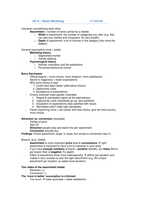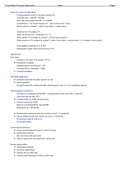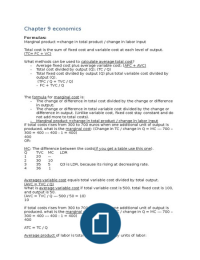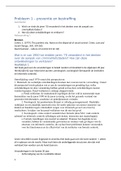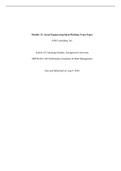INTRODUCTION
- Communities the world over are searching for moresustainable ways to meet energy
needs
- Consumers’ lifestyles will be affected considerably
- Sustainability also concerns the method of energy extraction, production, and
transportation
Reduction of CO2 so far has not been achieved
1. Conventional structures and market mechanisms
• Citizens are seen as mere consumers, responding to policy and
financial measures
2. Strong focus on technology
• PV panels, heat pumps, insulation, smart grids, electric cars, …
• However, technical parameters alone inadequately predict energy conservation!
- Behaviour is crucial Acceptance, commitment.
Use behavior behaviour change may negate technology’s potential benefits!
- Citizens are active participants - “energy citizens”
Participant, proponent, consumer, producer
- Focus on sustainability, in particular energy conservation: “What can be saved does
not need to be generated”
Focus on behaviour change
• Individual level
• Social level: groups, neighborhoods, communities, society
• Institutional level: policy makers
ANTECEDENTS OF BEHAVIOUR
• Demographics
- Income, wealth
- Household size and composition
- Life phase
- Level of education
- Rural – urban - rurban
• Attitudes
• Awareness
• Knowledge
• Risk perception
• Trust
- In technology
- In stakeholders – Governments, companies, experts, science,
• Fairness, justice
• Lifestyle, (sub)culture, identity
• Intrinsic versus extrinsic motivation
• Habits
• Social environment
,ERGO
- Behaviour has many possible antecedents
- However, if we want to change behaviour, we need to know what causes it and
under which conditions it occurs
THEORY OF PLANNED BEHAVIOUR
Understand behaviour: Theory of Planned Behavior Intentions, attitudes, subjective
norms, and behavioural control
Nature of behaviour
Behaviour is often explained by intentions and attitudes.
THEORY OF PLANNED BEHAVIOUR
Attitude
= A positive, negative, or mixed reaction to a person, object, or idea
Often quick, automatic, and “implicit.”
Subjective norm
- Influence of social environment
- In many studies SNs emerge as important antecedents
Behavioural control = an assessment about the efficacy of the focal behaviour
Perceived behavioural control
= How difficult do I believe execution of behaviour X is?
Actual behavioural control
= What are the obstacles hindering execution of behaviour X?
• Relevant for policy aimed at facilitating desired behaviour
• Amenable to multi-level approach
- Attitude: refers to individual perspective
- Social norm: implies the importance of others; social perspective
- Behavioural control: individual and institutional level
Social level as well, if group efficacy is considered
HOWEVER
• TPB assumes behaviour to be reasoned – but what about habits?
• When it comes to sustainability, the TPB does not incorporate many other important
factors
ERGO
• Transition to sustainability and energy transition often has a strong
technological perspective
• However, citizens’ behaviour strongly influences
- Successful transition to a sustainable (and circular) society
- Technology’s effectiveness in reducing energy consumption
Citizens are not merely passive consumers who act policy measures and
financial triggers, but “energy citizens”
,COMMUNICATION IN INNOVATION PROCESSES
1. Objective model
• Sender-receiver model → transfer of knowledge and information
• One-way information, focus on message and means
• Emphasizes communication in the diffusion phase of innovations
• Makes sense if you regard innovation in a linear way
2. Subjective model
• Sender-receiver, but recognizes that both might have a different perception
• Dialogue, focus on meaning and interpretation
• Sense-making, anticipation, and empathy
3. Construction model
• Construction of meaning through interactions
• Non-linear idea → one actor responsible for or able to steer the innovation
process
• Actors strategically mobilize meaning (based on their interests and roles)
• Combination of different communication efforts
Communication = the process by which people/organizations interactively create, sustain,
and manage meaning (Conrad & Poole, 1998)
LINEAR MODEL
LINEAR MODEL → NON-LINEAR
SUSTAINABLE INNOVATION
• Socio-technical system perspective (Geels et al., 2018)
• Analytical approach to understand the relationship between technology
and society
, • Technological innovation:
• Both technical and social aspects that are being influenced through
stakeholder interactions
• Aspects:
• Technological artefacts, markets, user practices, cultural meanings,
infrastructures, policies, industry structures, supply and distribution chains
SOCIO-TECHNICAL SYSTEM PERSPECTIVE
Success of sustainable innovations is highly dependent on
their societal context:
• Technical knowledge
• Consumer demands
• Infrastructure
• Regulations
• Norms and values
• Societal acceptance
STAKEHOLDERS AND SUSTAINABLE INNOVATION
• Stakeholders:
• Academia, politics, industry/businesses, civil society, end-users, and the
general public
• Resources, capabilities, beliefs, strategies and interests
• Every individual/social group/organization has their own interests in the
innovation and the question is how to influence and shape these.
• Not one stakeholder is responsible/steers sustainable innovation
• Economic, social, political, organizational, institutional factors influence the
development, diffusion, and use of (sustainable) innovations
MULTI-LEVEL PERSPECTIVE (MLP)
= Framework to study sustainable development (Geels et al., 2018)
• Based on socio-technical approach
• Society is the starting point
• Broader transitional processes in society
• Technological change is often a slow process that is difficult to influence
• Competition between existing (incumbent) and emerging technologies
Explains technological change by the dynamics on three levels in society: landscape, regime
and niches
1. SOCIO-TECHNICAL LANDSCAPE
- Metaphor → structural trends in society
- External (natural, social and political) environment
- Stakeholders cannot directly influence the landscape
• Changes do occur:
Very slow → climate change, earth quakes
- Communities the world over are searching for moresustainable ways to meet energy
needs
- Consumers’ lifestyles will be affected considerably
- Sustainability also concerns the method of energy extraction, production, and
transportation
Reduction of CO2 so far has not been achieved
1. Conventional structures and market mechanisms
• Citizens are seen as mere consumers, responding to policy and
financial measures
2. Strong focus on technology
• PV panels, heat pumps, insulation, smart grids, electric cars, …
• However, technical parameters alone inadequately predict energy conservation!
- Behaviour is crucial Acceptance, commitment.
Use behavior behaviour change may negate technology’s potential benefits!
- Citizens are active participants - “energy citizens”
Participant, proponent, consumer, producer
- Focus on sustainability, in particular energy conservation: “What can be saved does
not need to be generated”
Focus on behaviour change
• Individual level
• Social level: groups, neighborhoods, communities, society
• Institutional level: policy makers
ANTECEDENTS OF BEHAVIOUR
• Demographics
- Income, wealth
- Household size and composition
- Life phase
- Level of education
- Rural – urban - rurban
• Attitudes
• Awareness
• Knowledge
• Risk perception
• Trust
- In technology
- In stakeholders – Governments, companies, experts, science,
• Fairness, justice
• Lifestyle, (sub)culture, identity
• Intrinsic versus extrinsic motivation
• Habits
• Social environment
,ERGO
- Behaviour has many possible antecedents
- However, if we want to change behaviour, we need to know what causes it and
under which conditions it occurs
THEORY OF PLANNED BEHAVIOUR
Understand behaviour: Theory of Planned Behavior Intentions, attitudes, subjective
norms, and behavioural control
Nature of behaviour
Behaviour is often explained by intentions and attitudes.
THEORY OF PLANNED BEHAVIOUR
Attitude
= A positive, negative, or mixed reaction to a person, object, or idea
Often quick, automatic, and “implicit.”
Subjective norm
- Influence of social environment
- In many studies SNs emerge as important antecedents
Behavioural control = an assessment about the efficacy of the focal behaviour
Perceived behavioural control
= How difficult do I believe execution of behaviour X is?
Actual behavioural control
= What are the obstacles hindering execution of behaviour X?
• Relevant for policy aimed at facilitating desired behaviour
• Amenable to multi-level approach
- Attitude: refers to individual perspective
- Social norm: implies the importance of others; social perspective
- Behavioural control: individual and institutional level
Social level as well, if group efficacy is considered
HOWEVER
• TPB assumes behaviour to be reasoned – but what about habits?
• When it comes to sustainability, the TPB does not incorporate many other important
factors
ERGO
• Transition to sustainability and energy transition often has a strong
technological perspective
• However, citizens’ behaviour strongly influences
- Successful transition to a sustainable (and circular) society
- Technology’s effectiveness in reducing energy consumption
Citizens are not merely passive consumers who act policy measures and
financial triggers, but “energy citizens”
,COMMUNICATION IN INNOVATION PROCESSES
1. Objective model
• Sender-receiver model → transfer of knowledge and information
• One-way information, focus on message and means
• Emphasizes communication in the diffusion phase of innovations
• Makes sense if you regard innovation in a linear way
2. Subjective model
• Sender-receiver, but recognizes that both might have a different perception
• Dialogue, focus on meaning and interpretation
• Sense-making, anticipation, and empathy
3. Construction model
• Construction of meaning through interactions
• Non-linear idea → one actor responsible for or able to steer the innovation
process
• Actors strategically mobilize meaning (based on their interests and roles)
• Combination of different communication efforts
Communication = the process by which people/organizations interactively create, sustain,
and manage meaning (Conrad & Poole, 1998)
LINEAR MODEL
LINEAR MODEL → NON-LINEAR
SUSTAINABLE INNOVATION
• Socio-technical system perspective (Geels et al., 2018)
• Analytical approach to understand the relationship between technology
and society
, • Technological innovation:
• Both technical and social aspects that are being influenced through
stakeholder interactions
• Aspects:
• Technological artefacts, markets, user practices, cultural meanings,
infrastructures, policies, industry structures, supply and distribution chains
SOCIO-TECHNICAL SYSTEM PERSPECTIVE
Success of sustainable innovations is highly dependent on
their societal context:
• Technical knowledge
• Consumer demands
• Infrastructure
• Regulations
• Norms and values
• Societal acceptance
STAKEHOLDERS AND SUSTAINABLE INNOVATION
• Stakeholders:
• Academia, politics, industry/businesses, civil society, end-users, and the
general public
• Resources, capabilities, beliefs, strategies and interests
• Every individual/social group/organization has their own interests in the
innovation and the question is how to influence and shape these.
• Not one stakeholder is responsible/steers sustainable innovation
• Economic, social, political, organizational, institutional factors influence the
development, diffusion, and use of (sustainable) innovations
MULTI-LEVEL PERSPECTIVE (MLP)
= Framework to study sustainable development (Geels et al., 2018)
• Based on socio-technical approach
• Society is the starting point
• Broader transitional processes in society
• Technological change is often a slow process that is difficult to influence
• Competition between existing (incumbent) and emerging technologies
Explains technological change by the dynamics on three levels in society: landscape, regime
and niches
1. SOCIO-TECHNICAL LANDSCAPE
- Metaphor → structural trends in society
- External (natural, social and political) environment
- Stakeholders cannot directly influence the landscape
• Changes do occur:
Very slow → climate change, earth quakes


